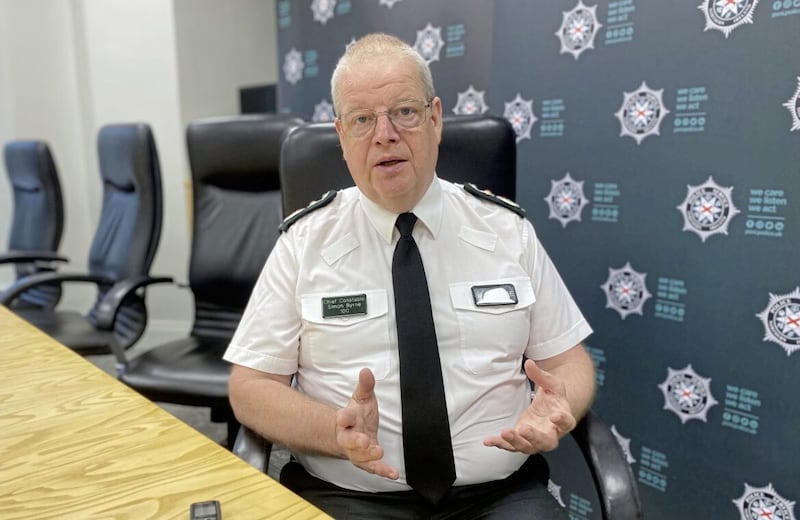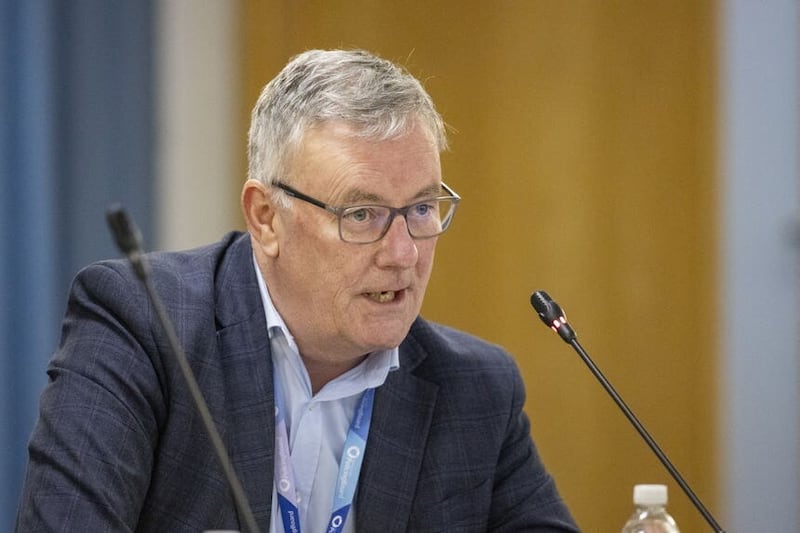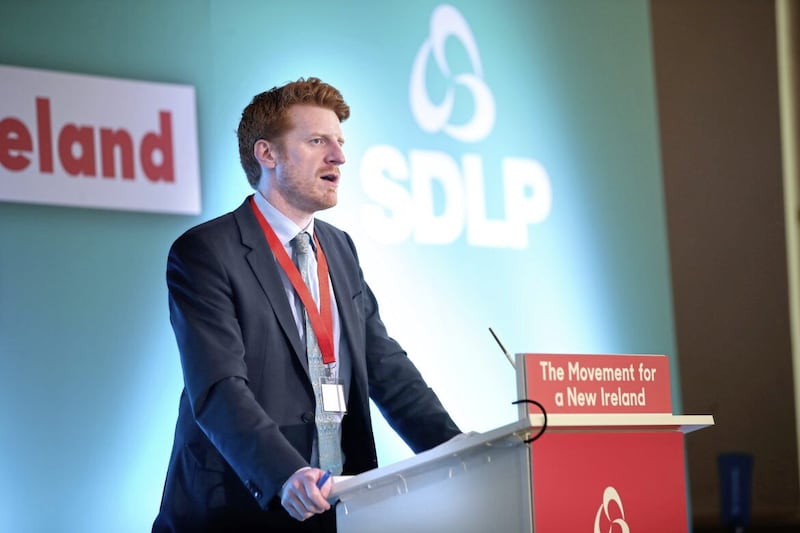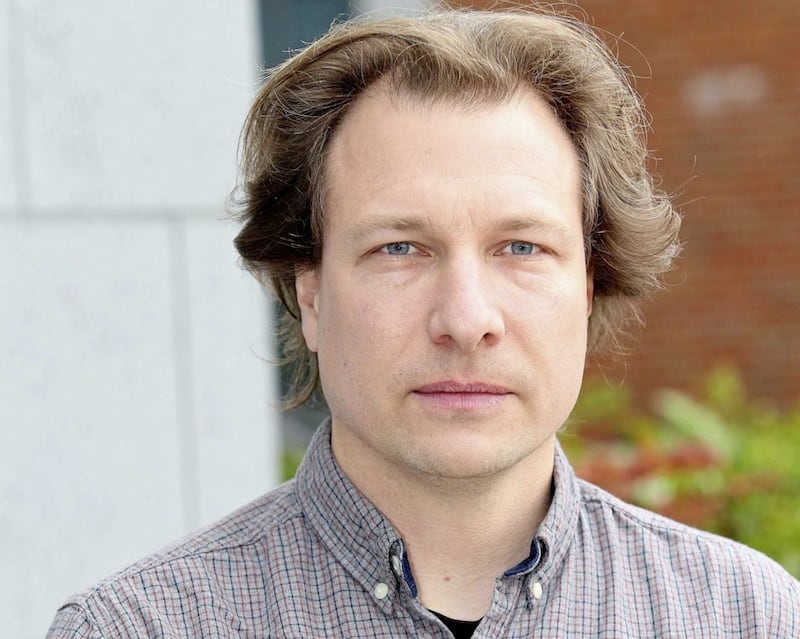The PSNI is facing strong criticism after it emerged that it carried out covert surveillance on a respected journalist investigating allegations that a senior member of the force received payments from a private company.
Earlier this year Barry McCaffrey, a former Irish News reporter, learned that police accessed his phone records without permission a decade ago during an investigation into the serious allegations.
It is understood Mr McCaffrey's investigation for the The Detail, an award-winning news and analysis website, was linked to the PSNI practice of rehiring former police officers who took severance packages under Patten reforms, which were designed to make policing more acceptable to nationalists.
Read More: Snooping scandal: Police secretly search journalist's phone records
Snooping scandal: Chief constable has questions to answer
It is believed the snooping operation was launched in a bid to identify Mr McCaffrey's sources.
The controversy is currently being examined by the powerful Investigatory Powers Tribunal (IPT), which considers complaints from people who believe they have been the victim of unlawful interference by public authorities using covert techniques.
Details of the surveillance came to light earlier this year after Mr McCaffrey and his colleague Trevor Birney made a complaint to the IPT in 2019 over their arrest the previous year in connection a highly-acclaimed 2017 documentary about the UVF murder of six men at the Heights Bar in Loughinisland, Co Down, in June 1994.
No Stone Unturned, directed by Oscar winner Alex Gibney, examined claims of state collusion in the murders and broke new ground by publicly naming alleged suspects.
At the request of the PSNI Durham Constabulary later investigated whether documents used in the making of the award-winning film had been stolen.
The homes of both men were raided while an office used by Mr Birney was also searched in an operation involving up to 50 police officers.
In 2020 the PSNI agreed to pay both Mr McCaffrey and Mr Birney and a production company £875,000 in damages.

PSNI Chief Constable Simon Byrne also issued an unreserved apology to both men.
It is understood that during his investigation a senior press office official told Mr McCaffrey a live covert operation was in place and requested that the story be withheld for several weeks.
The PSNI later asked the Detail to suppress the story "until such time as the investigation is complete".
It has now emerged that Mr McCaffrey's role as a journalist investigating the allegations against the senior PSNI officer then became the focus of an undercover PSNI probe, which included his phone records being secretly searched for information.
Politicians and human rights groups have voiced deep concern about the revelations.

UUP Policing Board member and Strangford MLA Mike Nesbitt described the allegations as "very disturbing".
"These allegations, frankly, I would consider them incredibly serious," he said.
He said that due to the current lack of political oversight journalists have assumed an important function.
"The role of scrutiny falls even more heavily on journalists, more than any part of this island," he said.
"If these guys are doing investigative journalism that's a necessary role and I would hate to think the PSNI was trying to interfere by doing something they shouldn't be doing."
Mr Nesbitt questioned the PSNI's agenda.
"If they were monitoring, it's an allegation, who were they trying to protect, what was their motivation, was it to protect somebody? he said.
He added that the case raises a "lot of questions" and confirmed he intends to bring the matter up with the Policing Board.

SDLP assembly member Matthew O'Toole said the revelations are "extremely concerning and leave the PSNI and its leadership with serious questions to answer about the conduct of our police service and their attitude towards journalists and the media".
“I acknowledge that police have made significant progress when it comes to journalists' safety, but the media must be free to carry out their work without being impeded by the police service or anyone else," he said.
"If police believe that journalists have information that may assist them then there are agreed ways of working to obtain that information, but accessing the phone records of journalists isn’t one of them and amounts to an attack on press freedoms."
Mr O'Toole pointed out that Mr McCaffrey was "investigating a serving police officer at the time when his phone was accessed".
"The PSNI needs to clarify what rules it has in place when it comes to the approach its officers take towards the media, whether they are investigating police officers or not," he said.
"If Mr McCaffrey was targeted in this way, then we need to establish if other journalists were subject to the same treatment and why."
Mr O'Toole said he will be following the case closely and urged the PSNI "to be fully transparent at what exactly took place here and if any lessons have been learned from this case in the years since this took place".
Sinn Féin MLA Linda Dillon said: “Investigative journalist Barry McCaffrey was vindicated by the courts in 2020 and was found to have acted properly while researching for a documentary into the Loughinisland massacre.
“His arrest was unlawful and he continues to legally challenge the removal of journalistic material at that time.
“Freedom of the press and the rights of journalists to do their job must be fully upheld," the Mid Ulster MLA said.
Alliance assembly member Nuala McAllister also raised "major concerns".
"As an investigation is under way we need to let it run its course, but we do have major concerns over this issue," said the North Belfast representative.
"We will be asking questions to PSNI leadership at the Policing Board about if or how widespread this issue was and to ensure there is extensive scrutiny of the past and current practices in relation to this matter.
"It is entirely unacceptable if the PSNI accessed these phone records without permission being granted, and we will await the findings of the Investigatory Powers Tribunal in their investigation."
Seamus Dooley from the National Union of Journalists said the development is a "shocking revelation and is the cause of utmost concern".
"Inevitably journalists and media organisations will question whether this was an isolated case or part of a wider policy by the PSNI," he said.
"If it was deemed appropriate to tear up the rules in the case of Barry McCaffrey how many other journalists were the victims of this type of behaviour?
"This has serious implications for the protection of confidential sources, for investigative journalism and for the conduct of journalism in Northern Ireland.
Patrick Corrigan from Amnesty International said the PSNI had "serious questions to answer".
"Snooping on a journalist’s phone is potentially a serious breach of human rights," he said.
Mr Corrigan said his organisation and the Committee on the Administration (CAJ) of Justice have jointly written to the Policing Board to ask for a "thorough investigation".

CAJ director Daniel Holder said: "It would be really alarming if there was a much broader practice of police using surveillance powers to spy on journalists.
"We really need oversight bodies to step in and look at this properly."
A spokeswoman for the PSNI previously said: "As the matter is subject to ongoing legal proceedings, it would be inappropriate to make any comment at this time."








